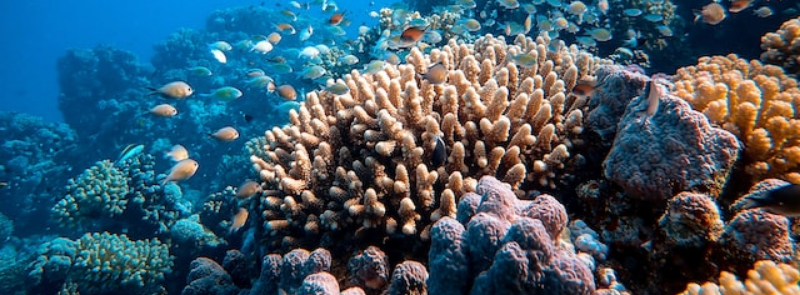
When It Occurs
Every June 1st
Official Website
Timeline
Days Passed (997)
# Hashtags
#WorldReefDay #CoralReefs
Every year on June 1st, World Reef Day is observed—a dedicated day to heighten awareness regarding the significance of coral reefs and the challenges they confront.
World Reef Day additionally functions as a rallying cry for consumers, businesses, and organizations to reflect on the fragile ecosystem of the ocean's coral reefs. The day aims to unite the general public, influencers, and opinion leaders in fostering tangible change through education and active engagement.
Significance of Coral Reefs
- Biodiversity Hotspots: Coral reefs are among the most diverse ecosystems on the planet, housing approximately 25% of all marine species despite covering less than 1% of the ocean floor.
- Economic Importance: Reefs provide substantial economic value through tourism, fisheries, and coastal protection. They are crucial for the livelihoods of millions of people worldwide.
- Natural Barriers: Coral reefs protect coastal areas from the impacts of waves and storms, reducing erosion and preventing property damage.
Threats to Coral Reefs
- Climate Change: Rising sea temperatures cause coral bleaching, where corals expel the symbiotic algae living in their tissues, leading to their death if stress persists.
- Ocean Acidification: Increased CO2 levels lower the pH of seawater, affecting the ability of corals to build their calcium carbonate skeletons.
- Pollution: Runoff containing fertilizers, pesticides, and other pollutants can lead to nutrient overloads, promoting algal blooms that smother corals.
- Overfishing: Unsustainable fishing practices can disrupt the ecological balance of reef systems.
- Physical Damage: Activities such as anchoring, tourism, and coastal development can physically damage reef structures.
Goals of World Reef Day
- Raise Awareness: Educate the public about the importance of coral reefs and the urgent need to protect them.
- Promote Conservation: Encourage practices that reduce human impact on reefs, such as sustainable tourism, responsible fishing, and reducing carbon footprints.
- Support Restoration: Highlight and support efforts in coral reef restoration and rehabilitation projects.
- Engage Communities: Foster community involvement in reef conservation through local actions and global collaborations.
How to Get Involved
- Education and Advocacy: Participate in or organize events that educate others about coral reefs and advocate for policies that protect marine environments.
- Sustainable Practices: Adopt eco-friendly habits, such as reducing plastic use, supporting sustainable seafood, and minimizing carbon emissions.
- Volunteer: Engage in local beach clean-ups, reef monitoring, and restoration projects.
- Support Organizations: Donate to or volunteer with organizations dedicated to reef conservation and marine protection.
Organizations Involved
Several organizations play crucial roles in promoting World Reef Day and supporting coral reef conservation:
- The Coral Restoration Foundation: Works on large-scale coral restoration projects.
- Reef Check: Conducts reef health monitoring and conservation efforts.
- The Ocean Agency: Utilizes technology and media to raise awareness about the state of coral reefs.
- Coral Triangle Initiative: Focuses on preserving marine and coastal resources in the Coral Triangle region.
By observing World Reef Day, individuals and organizations come together to recognize the beauty and importance of coral reefs and take collective action to ensure their survival for future generations.


